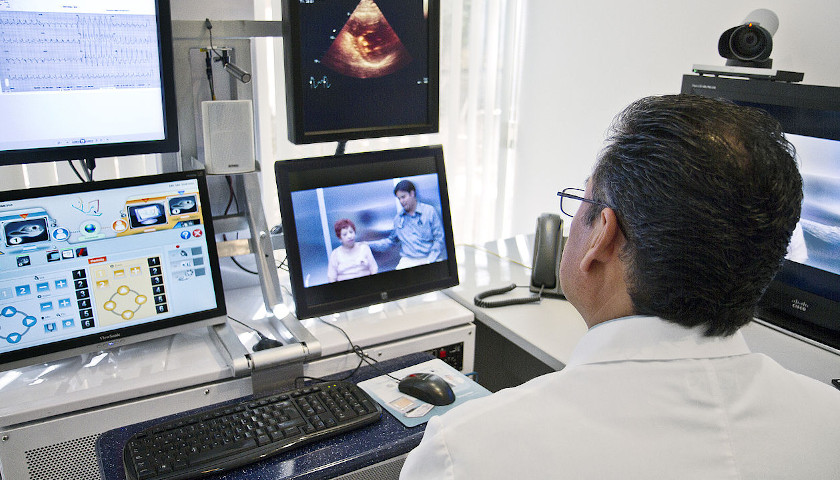by Mary Stroka
Iowa should make a few public policy changes to improve telehealth services, which have become more common during the COVID-19 pandemic, policy analysts said in a report Reason Foundation released Wednesday.
Cicero Institute and Pioneer Institute Senior Fellow Josh Archambault and Reason Foundation Policy Analyst Vittorio Nastasi co-authored the state-by-state report, “Rating the States on Telehealth Best Practices: A Toolkit for a Pro-Patient and Provider Landscape.”
Flexibilities in telehealth were often withdrawn when governors lifted emergency declarations, the report said. Any new laws were typically limited to incremental changes, it said.
“This toolkit aims to help policymakers take the next step toward a more quality-oriented, affordable, and innovative health system by ensuring that their state laws on telehealth remove deleterious barriers that have historically discriminated against those in certain geographies, such as those living in rural communities or in underserved urban areas,” the report said.
Telehealth policies should maximize choice for patients and providers and avoid imposing outdated regulatory frameworks, Nastasi said.
After surveying and crosschecking state regulatory codes, he and Archambault found that Iowa is among 20 states that allow nurse practitioners to independently provide virtual care.
“Nurse practitioners are highly qualified health professionals,” Nastasi told The Center Square in an emailed statement. “Allowing them to independently provide care is essential to expanding access and alleviating the growing national shortage of physicians.”
The report praised Iowa’s definition of health care professionals under Iowa Code 686D.2 as those who are “licensed, certified, or otherwise authorized or permitted by the laws of this state” to provide health care as encouraging innovation in delivery of telehealth services.
However, the state should expand its “relatively narrow” definition of telehealth, “the delivery of health care services through the use of interactive audio and video” (Iowa Code 514C.34), to include remote patient monitoring or store-and-forward technologies, Nastasi said. The Iowa Board of Medicine’s and Board of Physician Assistants’ definitions include those technologies and thereby increase flexibility for patients and providers, he said.
Also, Iowa shouldn’t require insurance providers to cover and reimburse telehealth services the same way as in-person services, which it does under Iowa Code 514C.34 and SF 619 (2021), the report said.
“These mandates undermine the cost-savings potential of telehealth and may lead to over utilization,” Nastasi said. “Telehealth is an evolving technological innovation in the healthcare industry, and regulatory flexibility is essential to unlocking its full potential. Iowa should repeal these mandates and avoid shoehorning telehealth into outdated models of care delivery and payment.”
Another challenge to telehealth is the requirement of health care providers to hold an Iowa license to practice telehealth in Iowa, the report said. The Hawkeye State participates in the Interstate Medical Licensure Compact and the Nurse Licensure Compact, but the compacts aren’t available for every health profession and they’re limited to only member states.
“This requirement undermines one of the primary benefits of telehealth – the ability to connect patients and providers regardless of physical location. … Creating a telehealth registration process like those in Florida and Arizona would be more effective at expanding access to care, especially from specialists located in other states,” Nastasi said.
– – –
Mary Stroka is a contributor to The Center Square.




